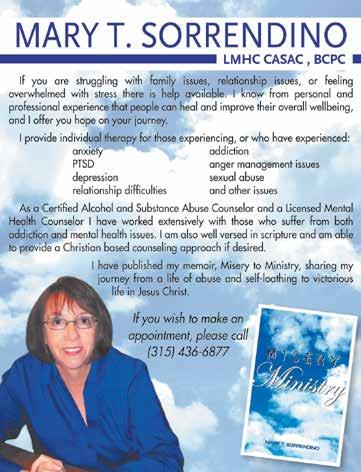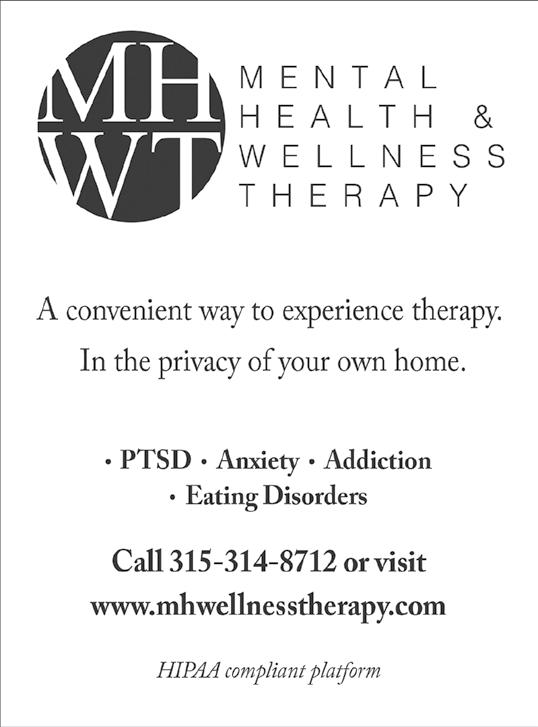
2 minute read
Recovery can be both scary and hopeful
Recovery can be both scary and hopeful By Nichole Cavallaro, LMHC
The definition of the word “recovery” is a return to a normal state of health, mind, or strength - per Google. Well, I know better than to go to the internet for everything. I wish it said, “recovery is a return to a person’s state of health, mind and strength that is progressive and functional for that individual.” I know for a fact that recovery is different for everyone, depending on the loss and/or struggle they have experienced.
The idea of recovering from something is scary and hopeful. The most important message I hope you take from this narrative is that it takes as long as it takes. It is truly one day at a time and for some, one hour at a time. It can be daunting and exhausting, and it can be surprising and reparative.
Recovery is a process that involves multiple pieces to it. Family plays a huge role. The connection and support of knowing there is a family system behind the person in recovery can be like that of a life raft. However, that does not mean the recovery process 100 percent relies on the family. Therapy or other treatment plays an important role, too. Whether it’s recovery from addictions, death/loss, physical injury, or trauma, treatment matters. However, that does not mean the recovery process 100 percent relies on treatment provided. The person who is recovering is doing the heavy lifting here. They are with themselves and their personal demons, losses, and grief. They sit with their memories, past histories, regrets and can easily withdraw into themselves whatever headspace they are in. They are healing. They are recovering; and this is their recovery.
It’s hard to write about recovery and keep it collectively tame. We hear the word recovery a lot in the addictions field. It is the preferred path and personal journey of someone who has been swallowed up by their addiction, and their success story or daily maintenance of their health and sobriety is their recovery. It is important to understand that recovery is healthy and necessary. It is not a word that indicates weakness or brokenness. When there is a survival from trauma, recovery happens. When there is a broken limb on a human body, recovery happens through physical therapy.
An important aspect to also be aware of are the people that are involved and effected by the recovery process. Sometimes recovery is painful. Perhaps there are family members or loved ones who have to let go for the sake of someone’s recovery and their personal safety. Where someone is trying to recover and maintain sobriety from drug use, it is common for their parents or family members to disengage and remove themselves from the relationship due to personal reasons. When there is a tremendous loss (such as a death in the family), recovery can also happen. For those dealing with family in recovery, whether it’s addictions, death and grieving, physical loss, etc., it is vital that anyone involved and affected by the recovery process, directly or indirectly, get support or guidance for themselves. No one should carry weight they aren’t able to breathe under. SWM
Editor’s Note: Nichole Cavallaro, LMHC, is an online mental health provider in Syracuse. To contact her, visit mhwellnesstherapy.com.











